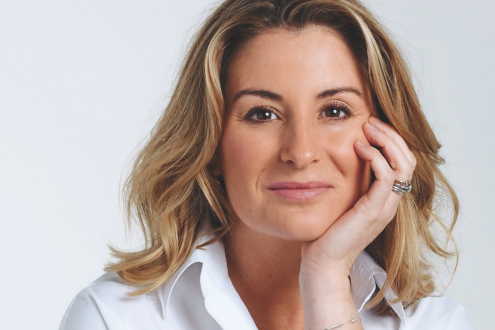Blues for the boys
Stuart Jeffries gets to the bottom of what men worry about

As a sex, men aren’t doing well. In England, 2.7 million of us suffer from depression, anxiety or stress – and that figure is probably an underestimate, because we are less likely to admit mental health problems, and more prone to mask them with alcohol, drugs or by working excessive hours.
In a recession, we are more likely to be made redundant than women, so perhaps it’s no wonder that, according to the mental health charity Mind, 40 per cent of us are miserable during the economic crisis.
In 1881, it was different. British men had beards you could lose badgers in and women under our thumbs. In 1882, the Married Women’s Property Act meant that wives were mere chattels no more. ‘Women no longer need to depend on men,’ says psychotherapist Philip Hodson. ‘Today, women are saying, “It’s the quality of intimacy in a relationship that gets things going”.’ The phrase ‘quality of intimacy’ is liable to make men shudder. Isn’t it enough that our superior economic status is no longer a given and expectations of us changing nappies have risen? Must we also up our game intimacy-wise?
‘If there is one word that sums up men now, that word is “anxious”,’ says Duncan Fisher, founder of Fathers Direct. ‘They’re lost in a new world.’ Modern male anxiety is about being inessential. Much of their worry is focused on three key areas – sex, ageing and parenting – which are, not surprisingly, linked.
1. Sex
‘When I had an affair, Josh was two. Susie hadn’t been interested in me sexually since she gave birth,’ says Adam, 54, an architect. ‘The sex with my lover was hopeless because I really didn’t want to do it. I wanted to be held. My lover wanted the opposite. So adultery was a bad joke for me.’
Long-term relationships eliminate the element of risk from sexual encounters. ‘Men worry that they are missing something,’ says clinical psychologist Linda Blair. ‘They’re often not sure what it is, but they are anxious that what they’re experiencing sexually with their partners is as good as it could be. And that leads to a temptation to look for sex elsewhere.’
‘Some men can’t cope with being demoted when their wives have a baby,’ says Hodson. ‘That’s why there’s a spike in adultery when a partner becomes pregnant.’ But what do men want from sex?
‘One thing is sex with someone who at the very least will refrain from criticising them,’ says Hodson. ‘Women should understand that men get depressed when a baby arrives because they feel rejected and not attractive,’ says Fisher. ‘It’s not that big a reach because most new mothers feel the same way, though for different reasons.’
Dr Luisa Dillner, author of Love By Numbers, argues that, while all couples need to talk through their sexual problems, the way to have a good relationship – sexually and otherwise – is to say five positive things to every one negative thing, and not to be critical or abusive when you argue. Research shows women should have sex with their male partner even if they do not feel like it – so long as they don’t regularly feel under pressure to do so. Dillner argues ‘this is because it’s easy to go off sex, as those with young kids, demanding jobs or any stress will know. You need to stay close and talk and be kind to each other to keep having sex.’
2. Ageing
‘I’m balding,’ says Gael, 42, a French banker working in the City of London. ‘Important distinction. If I were bald, I would feel as though I’ve got one foot in the grave.’ But surely baldness is positively associated with virility? ‘That’s what bald men say to get women into bed. Good luck to them if it works.’
Gael’s serious point is that, in an increasingly ageist society where a youthful appearance is important, men (like women) daren’t risk looking – or feeling – old. ‘There’s a paradox.We’re expected to work longer but older people are scorned in society and at work. Ageing terrifies me.’
With good reason. ‘Many elderly men were typically the parents who did not win custody of children when there was a divorce, or may have been distant with their children,’ says Amy Swan at Age UK. ‘So they enter later life with strained family ties.’ ‘I know that as each day goes by, I’m losing status and getting taken less seriously as a worker and as a human being,’ says Gael. ‘I’m needing approval and, as I get older, I get less and less of it.’
For Linda Blair, men and women both need approval, but different kinds. ‘Women want approval from their best friends,’ she says. ‘Men worry about being generally approved of. As they lose economic status, they feel less approved of, and that is desperately upsetting for them. Money isn’t what’s most important to men. Guys worry about being a good provider rather than money per se. As they get older, they worry about being able to provide for the ones they love, and if they can’t, or don’t, then they don’t know what they are.’
Former Cosmopolitan editor Linda Kelsey says it’s not only women who feel the need to conceal their age. When her friend Mike was made redundant at 57, he sent out 70 job applications and received only a few acknowledgments. In the next set of applications, he left off his date of birth and started getting interviews. ‘It’s now discriminatory to ask someone’s age in an interview, so you don’t have to offer the information,’ says Kelsey.
3. Parenting
‘The morning after Sue found out she was pregnant,’ recalls Dave, 35, a music producer, ‘I was crying on the train to work. I was 25, unready for that responsibility. ‘I stopped at a bookshop to find a book about fatherhood. One was a car manual for babies. The others were worse – all that “slacker dad I’m-so-rubbish ha ha ha”. They all seemed to be mocking any aspiration I might have to be a good father. In the end, I bought one targeted at mothers.’
Dave is unusual. Fathers frequently go into I-don’t-need-a-map mode when their partners are pregnant. ‘That’s because they’ve taken in the cultural stereotype that if you need information you’re a loser,’ says Duncan Fisher. To make it more complicated, men are increasingly asked to do childcare, even though society regards them as incapable of doing it well. ‘When a woman becomes a mother, she is bombarded with information,’ says Fisher. ‘She gets maternity leave and plugs in to a local network. Fathers are left uninformed and they fear cocking it up. It plays out like this: if a father is carrying a crying baby that he can’t connect with and soothe, he thinks, “That’s because I’m a man and I’m useless. I might as well not exist”.’
But male self-pity – if that’s what it is – has another dimension. ‘The baby gets all the physical intimacy from the mother, and fathers often feel depressed because they lose out,’ says Fisher. ‘It can be a miserable time when he feels excluded from the family and at the same time – paradoxically – resented for not doing enough childcare.’
‘Some mothers are very protective of their maternal role and with good reason,’ says Fisher. ‘For some, motherhood is their only status. Whatever they say to the contrary, they don’t want to let men do the childcare.’
A recent report on fatherhood found the couples surveyed were happier with traditional gender roles and that ‘hands-on’ dads find there’s more family conflict when there’s less of a clear division of responsibility. ‘Women need to trust men more,’ says Fisher. ‘Lots of men want to step up.’









